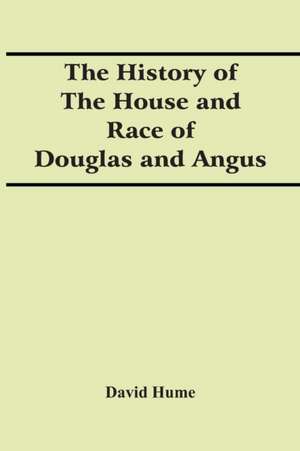The History Of The House And Race Of Douglas And Angus
Autor David Humeen Limba Engleză Paperback – 15 feb 2021
Preț: 126.86 lei
Nou
Puncte Express: 190
Preț estimativ în valută:
24.28€ • 25.25$ • 20.32£
24.28€ • 25.25$ • 20.32£
Carte tipărită la comandă
Livrare economică 15-29 martie
Preluare comenzi: 021 569.72.76
Specificații
ISBN-13: 9789354418792
ISBN-10: 9354418791
Pagini: 338
Dimensiuni: 152 x 229 x 20 mm
Greutate: 0.55 kg
Editura: Alpha Editions
ISBN-10: 9354418791
Pagini: 338
Dimensiuni: 152 x 229 x 20 mm
Greutate: 0.55 kg
Editura: Alpha Editions
Notă biografică
David Hume (7 May 1711 - 25 August 1776) was a Scottish Enlightenment philosopher, historian, economist, and essayist, who is best known today for his highly influential system of philosophical empiricism, skepticism, and naturalism. Hume strove to create a naturalistic science of man that examined the psychological basis of human nature. Hume argued against the existence of innate ideas, positing that all human knowledge derives solely from experience. This places him with Francis Bacon, Thomas Hobbes, John Locke, and George Berkeley as a British Empiricist.Hume argued that inductive reasoning and belief in causality cannot be justified rationally; instead, they result from custom and mental habit. We never actually perceive that one event causes another but only experience the "constant conjunction" of events. This problem of induction means that to draw any causal inferences from past experience, it is necessary to presuppose that the future will resemble the past, a presupposition which cannot itself be grounded in prior experience.An opponent of philosophical rationalists, Hume held that passions rather than reason govern human behaviour, famously proclaiming that "Reason is, and ought only to be the slave of the passions." Hume influenced utilitarianism, logical positivism, the philosophy of science, early analytic philosophy, cognitive science, theology, and many other fields and thinkers. Immanuel Kant credited Hume as the inspiration who had awakened him from his "dogmatic slumbers."
